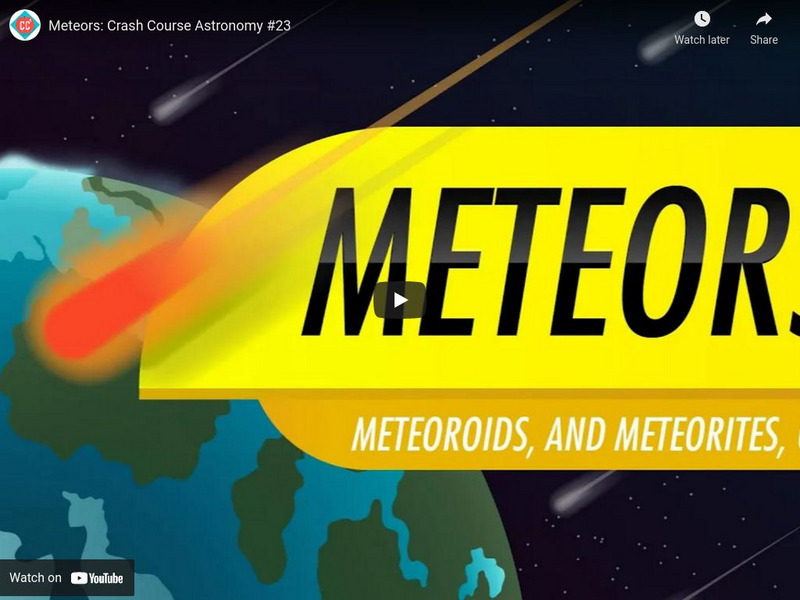One Minute History
The Ensisheim Meteor - One Minute History
November 7, 1492 - A meteorite crashes through Earth’s atmosphere, creating a sonic boom and illuminating the sky above the Austrian capital. Known as the Donnerstein, or Thunderstone, the deafening sound of the fireball is heard over...
Next Animation Studio
NASA says a large asteroid will fly by Earth on Feb. 15
NASA warned that asteroid 2002 PZ39 will approach Earth on Saturday.
One Minute History
The Ensisheim Meteor VERTICAL - One Minute History
November 7, 1492 - A meteorite crashes through Earth’s atmosphere, creating a sonic boom and illuminating the sky above the Austrian capital. Known as the Donnerstein, or Thunderstone, the deafening sound of the fireball is heard over...
Next Animation Studio
Five smaller asteroids heading towards Earth pose significant threat
Between 100,000 and a million small-scale asteroids have a possibility of hitting Earth over the next century, and five in particular have a collision risk of one in 1,000.
NASA
What's the Difference Between Asteroids, Comets, and Meteors? We Asked a NASA Expert
Asteroids, comets, and meteors: what's the difference? These space rocks each have their own unique attributes. But differences aside, these fascinating objects are all worthy of study. Just ask @NASA Jet Propulsion Laboratory scientist...
Mazz Media
Meteor
This live-action video program is about the word meteor. The program is designed to reinforce and support a student's comprehension and retention of the word meteor through use of video footage, photographs, diagrams and colorful,...
Curated Video
Exploring Meteoroids, Meteors, and Meteorites: A Journey Through Space Debris
This video explains the difference between meteoroids, meteors, and meteorites. They discuss the history of meteors and how they were once believed to be fireballs or signs of impending doom. The video also covers the origin and...
Visual Learning Systems
The Atmosphere: Upper Layers of the Atmosphere
Students will learn about the different layers of the atmosphere. The changes in the atmosphere are explained using examples of contemporary environmental conditions brought about by human behavior. The oxygen cycle and the carbon cycle...
Bridgeman Arts
She Flies - A film about the Concorde
This iconic award-winning film documents the supersonic Mach 11 aircraft, the Concorde 001, and its first flight from Blagnac, Toulouse, France in March 1969. The end of the film features the first flight of the Concorde 002 from the UK,...
Be Smart
Asteroids, Meteors, Comets… and the End of the World?
Dinosaurs owe their destiny to an asteroid. What are the chances humans will meet the same fate? A fascinating video lesson considers the probability of an asteroid colliding with the earth while taking into account variations in...
The Brain Scoop
Fossil Meteorites
Fossils ... from space? Science scholars discover evidence in a limestone quarry that helped researchers learn about a meteor shower that lasted hundreds of thousands of years through an interesting video from Brain Scoop's Fossils and...
The Brain Scoop
Meteorites From Spaaaaaace!
Eighty thousand tons of material enters Earth's atmosphere every year. The video, part of a playlist from Brain Scoop on Fossils and Geology, focuses on meteorites. It defines the three types and explains which are most and least common....
MinutePhysics
Astronomically Correct Twinkle Twinkle
What do you get when astronomers rewrite beloved children's songs? THIS! Hear the tune Twinkle Twinkle Little Star as it was meant to be — from a scientist's perspective. Physics scholars follow along to a scientifically correct...
Crash Course
Meteors
When you wish upon a shooting star ... you're actually pinning your hopes and dreams upon a meteor! Science scholars discover the origin of these dazzling falling bodies in a video that's sure to captivate. The narrator explains the...
SciShow Kids
Comets and Asteroids!
Follow along as host Jessi and her mouse sidekick, Squeaks, examine space's comets and asteroids. Discover what they are made of, their size, where we can find them, and two of the more popular space objects of the group.
Scholastic
Study Jams! Earth's Atmosphere
Earth's thick atmosphere plays a vital role in the ability of the planet to sustain life. Learn about the layers of the atmosphere and their properties, how the gases surrounding the earth help protect the planet, and a little about...
Curated OER
Comets And Meteor Showers (Perseid Meteor Shower)
As the dusty tail of a comet pass near Earth, particles fly off and burn up in Earth's atmosphere creating beautiful meteor showers. Learn about the Perseid Meteor Shower and the NASA space craft that make it possible for us to know when...
Curated OER
Meteors from Halley's Comet
Did you know that meteor showers come from comet tails? A NASA scientist explains that we may not be able to see Halley's Comet for another fifty years, we can experience marvelous meteor showers from its tail. Getting kids excited about...
PBS
Pbs Learning Media: Crash Course Astronomy: Meteors
Meteors are small bits of interplanetary debris broken off from asteroids or comets. When the Earth plows through the stream emitted by a comet, we get a meteor shower. Meteors burn up about 100 km above the Earth, but some survive to...
Science for Kids
Science Kids: Space Videos: Russian Meteor Explosion
Watch dramatic footage of a Russian meteor fireball and explosion from a variety of angles. [1:24]
Crash Course
Crash Course Astronomy #23: Meteors
Today Phil helps keep you from ticking off an astronomer in your life by making sure you know the difference between a meteor, meteorite, and meteoroid. When the Earth plows through the stream emitted by a comet we get a meteor shower....
PBS
Pbs Learning Media: Moon Craters
Explore why the moon looks the way it does. Watch kids use the scientific method to learn how craters form.
NASA
Nasa: Science Casts: Perseid Meteors vs the Supermoon
Which is brighter--a flurry of Perseid fireballs or a supermoon? Sky watchers found out when the biggest and brightest full Moon of 2014 arrives just in time for the peak of the annual Perseid meteor shower. [2:52]












